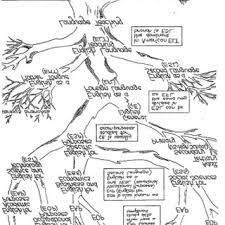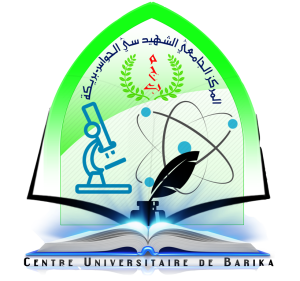Teacher : Abdelmalek Cherrouf
- Enseignant: Cherrouf Abdelmalek

Welcome Ladies and Gentlemen
In this module the learner will be introduced to the main concepts of teaching English for Specific Purposes.
To demonstrate the main differences between general English and ESP.
- Enseignant: hadjoudj hadil

English for specific purposes (GROUP 3)
- Enseignant: rayane abbi

Module: Translation
Credits: 02
Coefficient: 02
Course Objectives
Allow the student to understand the translation process and know the techniques used when transferring the meaning of the national language to the language of study and vice versa in order to carry out translations respecting the meaning and genius of the language, as well as than producing correct and understandable translations. This passage will be carried out at the sentence level then at the textual level.
Recommended prior knowledge
- Knowledge of the linguistic systems of the national language and the language of study.
- mastery of national language(s) and language of 50% - 50% (Written exams and continuous Assessment)
Overview
- Enseignant: settouf khaoula

- Enseignant: benkorichi soundous

“I never teach my pupils, I only attempt to provide the conditions in which they can learn” ALBERT EINSTEIN
This course is an introduction to didactics and it aims mainly at:
- Enable the students to understand and discuss key concepts in Didactics.
- Enable them to understand the relationship between these concepts and reflect on the teaching-learning process in relation to the field of study/subject matter.
· Enable them to discuss key concepts in didactics in which students will have an in-depth exploration of the various techniques, procedures, methods and strategies that didactics as a discipline studies.
- Enseignant: HADJER SEKKAK

Summary of the Subject:
Cognitive psychology lectures focus on the study of mental processes such as attention, language use, perception, problem-solving, and memory. It is concerned with how people acquire, store, process, and use information. Through these lectures, students will explore the intricate workings of the mind, and understand the internal processes that drive human behavior. Ultimately, the subject seeks to unravel the complexities of mental functions, shedding light on how individuals think, learn, and navigate the world around them.
Targeted Students:
3rd year undergraduate student, Department of English language
Groups: 01, 02, 03
Teacher: Dr. Khadidja Samira ZITOUNI
Content:1. Introduction to Cognitive Psychology
2. Perception
3. Memory
4. Attention
5. Cognition and Intelligence
- Enseignant: Khadidja-Samira ZITOUNI

The course consists of discovering and working on techniques of decoding what students read, then develop and enhance writing techniques by tackling the most common mistakes students usually make during activities in the classroom.
- Enseignant: Zakaria Mohy Eddine Youcef

Third year students are supposed to understand the term ICTs( information and communication technologies).
Third year students should be able to recognize the most aspects and elements of technologies in order to use them for learning practices.
the following syllabus comprises the major concerns of ICTs and their use inEFL learning and teaching:
I/1.Understanding ICTs & Its Emergence
2. Why use ICTs in education?
3. Challenges against using ICTs
4. Introduction into computer
Computer systems
a) Input devices
b) Output devices
5.Types of ICTs
5.1. Softwares with examples
5.2. Hardwares with examples
II/Modes of Learning
1.Presential /traditional learning
advantages and disadvantages
2.hybrid
advantages and disadvantages
3.Online
Advantages and disadvantages
Synchronous and Asynchronous
ICTs and Language learning
MAL L
CALL
- Enseignant: ais Hamza

- Enseignant: AMINA BOUZIDI
